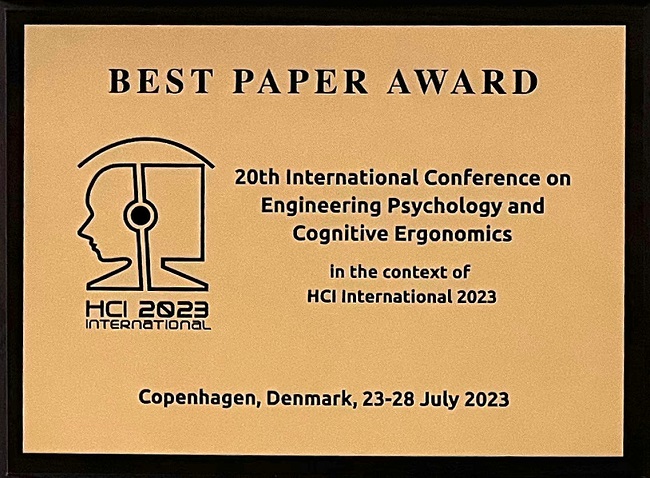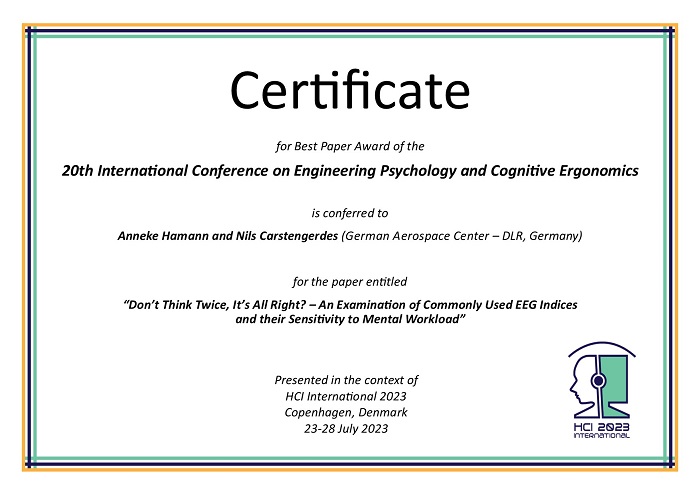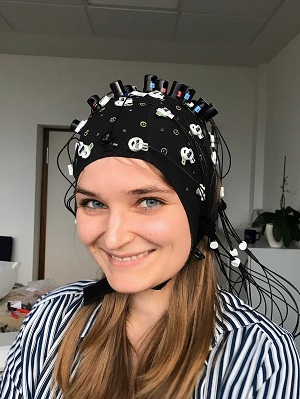
Best Paper Award for the 20th International Conference on Engineering Psychology and Cognitive Ergonomics, in the context of HCI International 2023, Copenhagen, Denmark, 23-28 July 2023

Certificate for Best Paper Award of the 20th International Conference on Engineering Psychology and Cognitive Ergonomics
The award has been conferred to
Anneke Hamann and Nils Carstengerdes
(German Aerospace Center - DLR, Germany)

Fangyuan Cheng
(presenter)
for the paper entitled
"Don't Think Twice, It's All Right? - An Examination of Commonly Used EEG Indices and their Sensitivity to Mental Workload"
Presented in the context of
HCI International 2023
Copenhagen, Denmark
23 - 28 July 2023
Paper Abstract
"Physiological monitoring of the operator's current state has gained much attention in aviation research, especially for the development of adaptive assistance systems. In order to tailor the assistance to the human operator's current needs, these systems need to be informed about their operator's state. Physiological data can provide such information objectively, continuously and almost in real-time. Using electroencephalography (EEG) band power analyses, changing cortical activation can be detected and inferences about cognitive states drawn. In addition, the combination of band powers into indices is sometimes used to enhance sensitivity. In the current work, we compared the sensitivity of two indices commonly used for mental workload (MWL) assessment, the Task Load Index (TLI) and the Engagement Index (EI), against each other and with single band powers. We computed the TLI and EI from the datasets of two flight simulator studies that induced MWL while controlling for mental fatigue (MF) (N = 35) and vice versa (N = 31). We hypothesized that both TLI and EI would increase with MWL, but would not vary with MF. Additionally, according to the literature, TLI and EI should be more sensitive to changes in MWL than single bands. The TLI increased with increasing MWL, but proved less sensitive than theta band power alone. It did not vary with increasing MF. The EI did not vary with MWL, but decreased slightly with MF. We conclude that the usefulness and sensitivity of EEG indices is not universal, but varies considerably across studies and most likely experimental tasks. Therefore, the choice of an EEG feature should be made carefully. Especially in automated systems developed to monitor the operator's state, EEG features should not be used blindly as a seemingly valid data source, but always empirically validated with respect to their sensitivity."
The full paper is available through SpringerLink, provided that you have proper access rights.